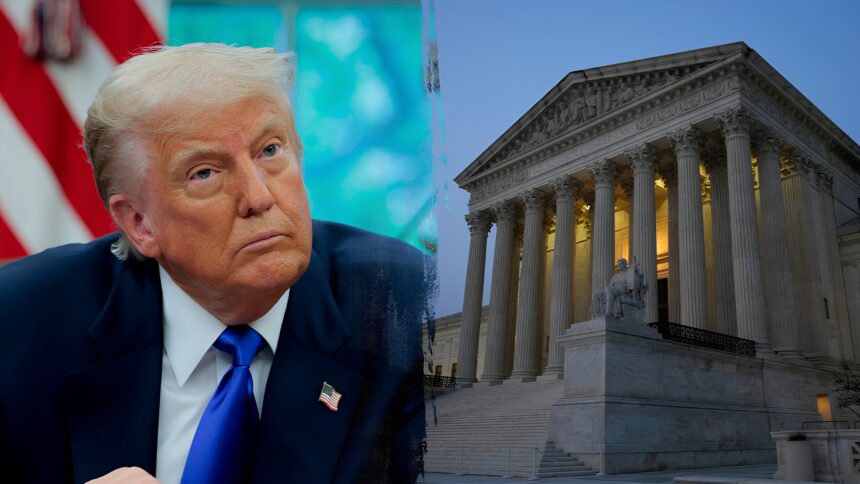The United States Supreme Court on Friday delivered a judgment to limit nationwide injunctions, a move that could open the door for U.S. President Donald Trump’s immigration agenda to surge forward.
The U.S. apex court, in a 6-3 ruling on Friday, curbed the powers of federal judges to issue orders that halt policies across the country.
This comes as the Trump administration has been battling with many judicial orders and actions.
Reacting to the ruling, Trump said that a “whole list” of his administration’s policies can now move forward following the Supreme Court’s decision on injunctions.
He said: “Thanks to this decision, we can now probably file to proceed with these numerous policies and those that have been wrongly enjoined on a nationwide basis, including birthright citizenship, ending sanctuary city funding, suspending refugee resettlement, freezing unnecessary funding, stopping federal taxpayers from paying for transgender surgeries and numerous other priorities of the American people. We have so many of them. I have a whole list.”
Pan-Atlantic Kompass in this article explains how this decision could reshape the immigration landscape;
What Are Nationwide Injunctions?
Before now, nationwide injunctions are judicial orders that block a federal policy from being enforced anywhere in the U.S., even for those not directly involved in a lawsuit.
These injunctions have been a critical check on executive power, especially for Trump’s immigration agenda, which faced over 40 such orders since his second term began in January 2025.
With the latest judgment, the nationwide injunction is now restricted to only the plaintiffs or states directly involved in a case, unless a class-action lawsuit justifies broader relief.
Trump’s Immigration Policies Set to Take Flight
1. Ending Birthright Citizenship: Trump’s executive order, issued on his first day in office, seeks to deny U.S. citizenship to children born on American soil to undocumented immigrants or those on temporary visas.
This policy was blocked by nationwide injunctions in Maryland, Massachusetts, and Washington. With the Supreme Court’s decision, this policy could move forward in states without injunctions.
2. Mass Deportations to Third Countries: The Supreme Court’s order has also lifted a nationwide injunction requiring due process for deporting migrants to third countries with no prior connection, such as South Sudan.
The ruling enables the administration to deport migrants to countries willing to accept them, bypassing lengthy legal processes.
3. Revoking Humanitarian Parole for 530,000 Migrants: The apex court decision also allows the Trump administration to end a program initiated by former U.S. President Joe Biden, granting temporary legal status to over 530,000 migrants from Cuba, Haiti, Nicaragua, and Venezuela.
This decision lifts protections for these immigrants, exposing them to deportation unless they secure alternative legal status, like asylum.
4. Executive Orders and Funding Bans: Trump’s January 28, 2025, executive order barred federal funding for pediatric transgender surgeries and hormone treatments, targeting programs like Medicare, Medicaid, and TRICARE.
A federal judge in Seattle blocked this order on March 1, 2025, citing equal protection violations, but the Supreme Court’s ruling on nationwide injunctions could limit such blocks to specific plaintiffs or states, allowing the policy to take effect elsewhere.





